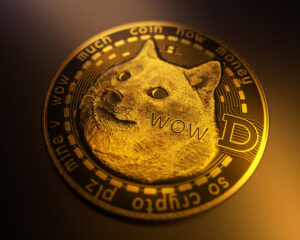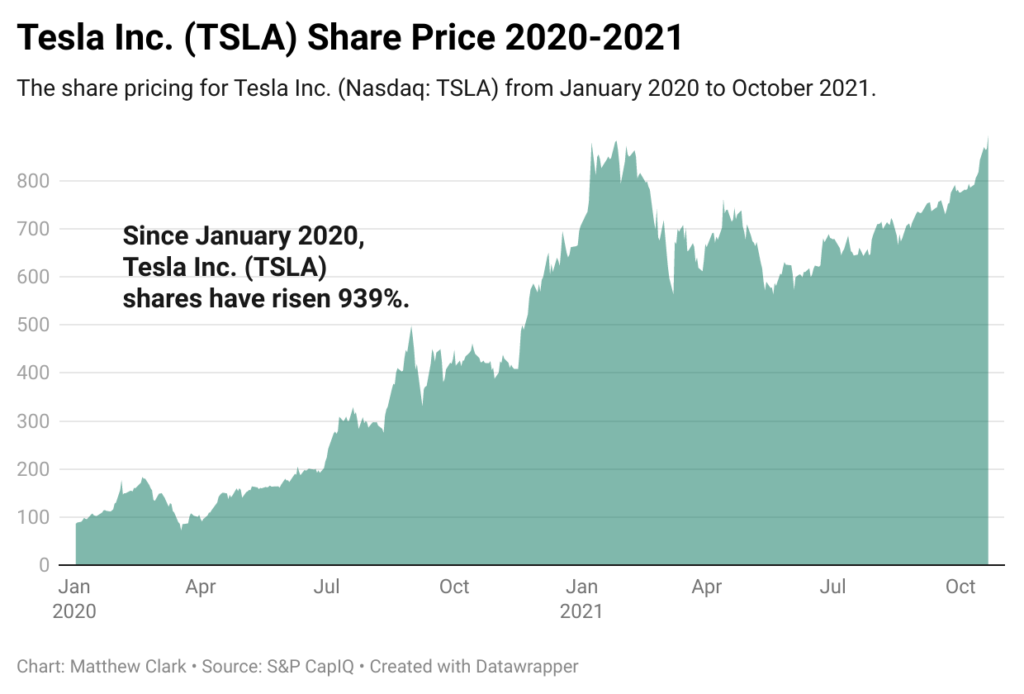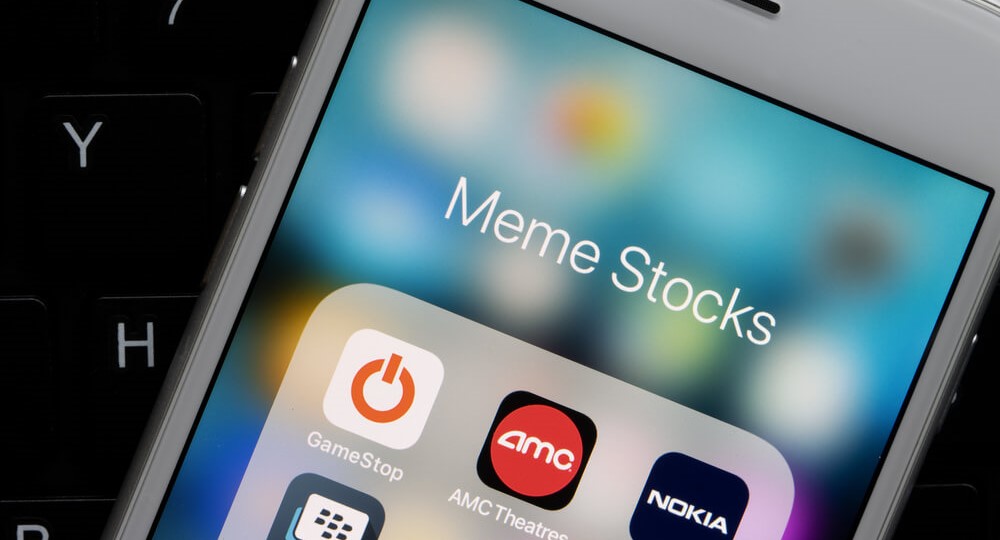When historians try to make sense of this era, they may have a hard time explaining how a joke cryptocurrency featuring a dog’s face somehow grew to have a market cap of tens of billions of dollars and even partially funded a manned mission to the moon.
 Yet it happened. Dogecoin was an internet meme (rhymes with “team”) that somehow became a global phenomenon.
Yet it happened. Dogecoin was an internet meme (rhymes with “team”) that somehow became a global phenomenon.
This brings up a longer discussion on meme stocks. You’ve no doubt heard of meme stocks, and it’s possible you’ve even traded a few. But what are they, exactly?
There’s not really a definition, per se, but I can explain by example.
What Are Meme Stocks?

“Business Cat” is one of thousands of memes that circulate the internet every day.
Memes essentially start as inside jokes. You text a funny photo with a caption on it to your buddy, and next thing you know it’s gone viral and spread around the world. That funny photo of a cat or a scene from a movie with a joke at the bottom that made you laugh? That’s a meme.
Meme stocks work the same way.
A group of people in an online forum or message group start hyping a stock and it goes viral. The idea might have been originally based on solid research — that was certainly the case in the epic short squeeze in GameStop Corp. (NYSE: GME) earlier this year — but after a certain point, the fundamentals stop mattering and the trading takes on a life of its own. It turns into more of a social experiment fueled by the internet and sites like Reddit and Twitter.
It can also get ideological. The GameStop short squeeze involved an army of smaller retail traders taking the opposite side of the trade from the hedge fund masters of the universe in a David vs. Goliath dynamic. And David most certainly won. Goliath was left bleeding on the battlefield.
GameStop was the biggest example, but there’s a long list. Tesla Inc. (Nasdaq: TSLA) was arguably the first and most durable meme stock, as the company’s valuation seems to be tied more to the rabid devotion of CEO Elon Musk’s fans rather than to any underlying business fundamentals. Tesla’s shares are up by more than a factor of 10 since the beginning of 2020 and show no sign of slowing down. TSLA even hit an all-time high on Friday.

Other stocks that have made the meme rounds include AMC Entertainment (NYSE: AMC), Bed, Bath and Beyond (NYSE: BBBY) and BlackBerry Ltd. (NYSE: BB), among many others.
Should You Invest in the Trend?
You know me. I’m a trader, and I’m never going to tell you not to trade. Had you timed it right, you could have made a fortune trading any or all of the meme stocks I mentioned.
But that’s the issue. You have to time it right because, in most cases, the essence of a meme stock is that the fundamentals don’t matter. The shares rise because of internet popularity, which can be fleeting. And if you don’t know what a stock is worth or it’s fundamentals don’t matter… how do you know when to sell?
Again, not every aspect of meme stock trading is bad. Nothing could be further from the truth.
The initial Reddit traders that identified GameStop as a potential short squeeze identified a fantastic trading opportunity. And we applied similar logic in Green Zone Fortunes late last year, identifying the potential for a short squeeze as part of our bullish thesis on a popular beverage company. (We doubled our money in about a month on half the trade.)
But as a general rule, if you’re basing your stock picks on internet gossip, you’re not likely to do well. And meme stocks are way too volatile for my liking.
There are better ways to invest. I’m a systems trader, and I base my recommendations on a mixture of fundamental and technical factors. I have rules (like finding stocks with maximum momentum) that govern when I enter a position… and when I make my exit.
Speaking of that, I’m ready to reveal how millions of new investors have accidentally opened a perfect trading window, and I’ve designed a system to exploit this anomaly for massive gains. I’ll go live on November 4 with all the details. To sign up for the live event, click here.
To good profits,

Adam O’Dell
Chief Investment Strategist




